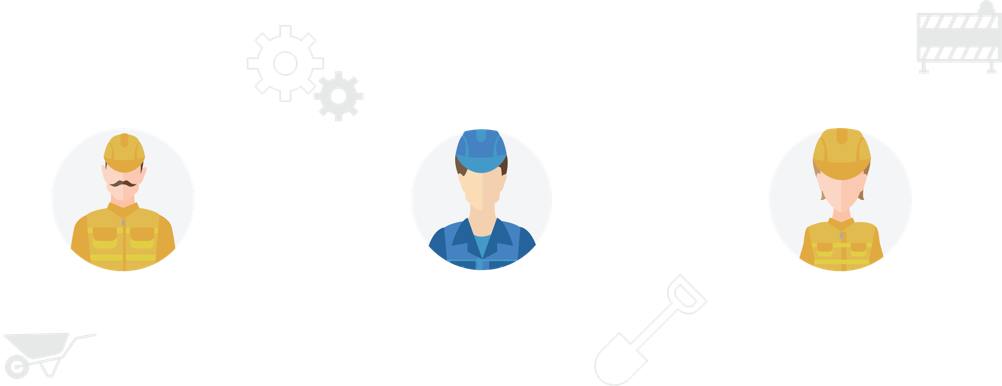
Hoisting Engineers are involved in the set up and operator of electric-powered cranes. There are three branches, which differ by the amount of weight a crane can lift. Branch 1 (339A) and Branch 2 (339C) are Mobile Crane Operators, while Branch 3 (339B) is for Tower Crane Operators.
Job Related Skills, Interests and Values
- Reading and interpreting construction plans and blueprints
- Calculating crane capacity and weights
- Hoisting, raising, moving, and positioning objects and loads, which weigh in the tons, in response to audio or hand signals from crew members
- Performing difficult maneuvers in tricky situations
- Maintaining a calm demeanour and being able to think through the situation if things go wrong
- Learning, understanding, and applying safety regulations to the job
- Communicating effectively with co-workers to ensure safety of those working near machinery
What Preparation and Training Do You Need?
- Grade 10 is the legal minimum, but a secondary school diploma is generally required
- Hoisting Engineer Mobile Crane Operator Branch 1 requires 6,000 apprenticeship hours, including two 240-hour in-school training sessions; specific driver’s license requirements also apply; Branch 1 is a Red Seal trade
- Branch 2 is a 1000-hour apprenticeship, including a 240-hour in-school training session
- Hoisting Engineer Tower Crane Operator requires a 3,000-hour apprenticeship; Tower Crane Operator is a Red Seal trade
- Exam to obtain Certificate of Qualification
What's Your Future as a Hoisting Engineer (339 A/B/C)?
- Members of Union of Operating Engineers; unions takes on apprentices each year and pays percentage of journeyperson's wage, with benefits
- Potential employers include commercial developers, building or heavy construction firms, and manufacturing companies
Wage Rate
Apprentice wage increases with skill and experience. Fully qualified workers earn an average of $40.00 per hour.
Self-Rating
Hoisting Engineer (339 A/B/C)
| Ask Yourself: | Yes | No |
|---|---|---|
| Do you have good hand-eye coordination? | ||
| Are you able to work indoors and outdoors? | ||
| Are you comfortable working at all heights? | ||
| Do you have a driver license and good driving record? | ||
| Are you able to follow Health & Safety guidelines? | ||
| Are you comfortable with traveling for work? | ||
| Are you good at judging distances and weight? | ||
| Are you reliable, a self-starter and able to work with minimal supervision? | ||
| Are you interested in travelling for work? |
If you checked YES to the majority of these questions, a career as a Hoisting Engineer may be for you!
You might want to look at these similar trades as well;
- Heavy Equipment Operator (backhoe, bulldozer, excavator)
- Power Line worker
Heavy Equipment Operators operate heavy equipment used in the construction and maintenance of infrastructure and in surface mining and quarrying activities, including backhoes, loaders, graders, dozers, and excavators. Heavy equipment operator specializations include Tractor Loader Backhoe Operator (636A), Excavator Operator (636B), and Dozer Operator (636C).
Construction Millwrights install, maintain, and troubleshoot industrial machinery, mechanical equipment, and other automated and robotic systems. They primarily service the construction industry and often work closely with other tradespeople, such as pipefitters and electricians.
Steamfitter/Pipefitters lay out, assemble, fabricate, maintain, and repair piping systems carrying water, steam, chemicals, and fuel through heating, cooling, and lubricating systems.
Powerline Technicians build and repair overhead and underground power lines, which are used to conduct electricity from generating plants to the customer. They erect and maintain poles and towers, as well as install and maintain street lighting systems.